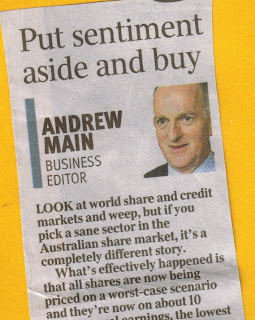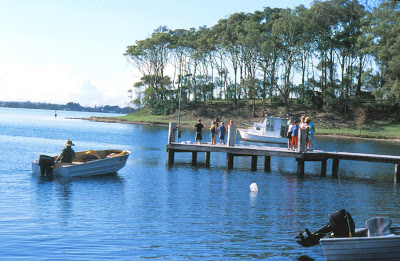On August 30, I put up a post headed “This time Mick Keelty must do the honourable thing and resign.” It was not without some misgivings – it's a harsh call, and the Federal Police Commissioner appears to be a decent fellow.
But as the Dr Haneef affair showed, he allowed himself to become a servant of John Howard's government in its duplicity and spin doctoring. Last night, ABC television's Four Corners program confirmed my view.
In my August post, I wrote:
When he won office in 1996, one of Howard's first actions was to sack six public service department heads – a third of the departmental secretaries – in a sudden and brutal putsch.
Many of us saw it as an assault on the public service obligation to give "frank and fearless" advice to ministers, although some might argue it was to ensure the public service implemented the will of an elected government.
But a police commissioner is not just a public service head. He or she has an obligation greater than implementing government policy – an obligation to uphold the law without fear or favour. When Howard bullied Keelty into a humiliating submission, and Keelty accepted it, they both destroyed something of value.
Last night, Four Corners revisited the humiliating "clarification" John Howard and his chief of staff Arthur Sinodinus forced Keelty to make in a televised press conference in March 2004. You will recall this came after the Federal Police Commissioner made an honest comment on Channel Nine which did not accord with the Howard government's spin on terrorism.
Chillingly, the Four Corners program showed that John Howard did believe the AFP was required to do whatever he demanded, provided it did not involve breaking laws.
In the course of a program titled Good Cop, Bad Cop – in which journalist Sally Neighbour investigated "what's wrong with the Federal Police" – Mr Sinodinus gave an interview on camera, and he is to be commended for his frankness.
Mr Sinodinus said the AFP's job was to "work within the framework of policy, subject of course to their not breaking the law".
Sally Neighbour came back at him: "Is it their job to do the bidding of government as long as it's not illegal?" Sinodinus replied: "In my view it is."
Think about this for a moment. Is it taking it too far to say John Howard and his chief of staff believed it was acceptable to sool the Federal Police on to targets which suited their political agenda? Providing, of course, it did not demand something which would be illegal.
Did Mick Keelty fail to dispute that view, especially after having submitted to the brutal public humiliation imposed by Howard and Sinodinus?
Perhaps, then, I was justified in this comment in August:
We now know there never was a persuasive case that Haneef was involved in terrorist activities or knew of the Glasgow bomb plot.
Yet Keelty oversaw the expenditure of more than $8 million in the investigation. He let the AFP become part of a political agenda driven by John Howard, Phillip Ruddock and Kevin Andrews. He did so at a time when the British authorities had accepted Haneef's innocence, and when our security services like ASIO had already ruled out Haneef as a terrorist concern.
The Four Corners program may be viewed online at
http://www.abc.net.au/4corners/content/2008/20081027_cops/interviews.htm
My August post should come up on
http://grumpyoldjourno.blogspot.com/2008/08/mick-keelty-must-do-honourable-thing.html
A correction: In my earlier post I said John Howard saw Keelty's TV interview and went ballistic. In last night's Four Corners program, Mr Sinodinos said he saw the program and phoned Howard to say there could be a problem. Howard's response was: "Ring Mick and let him know that I'm very concerned about this because of the way it could be interpreted."







